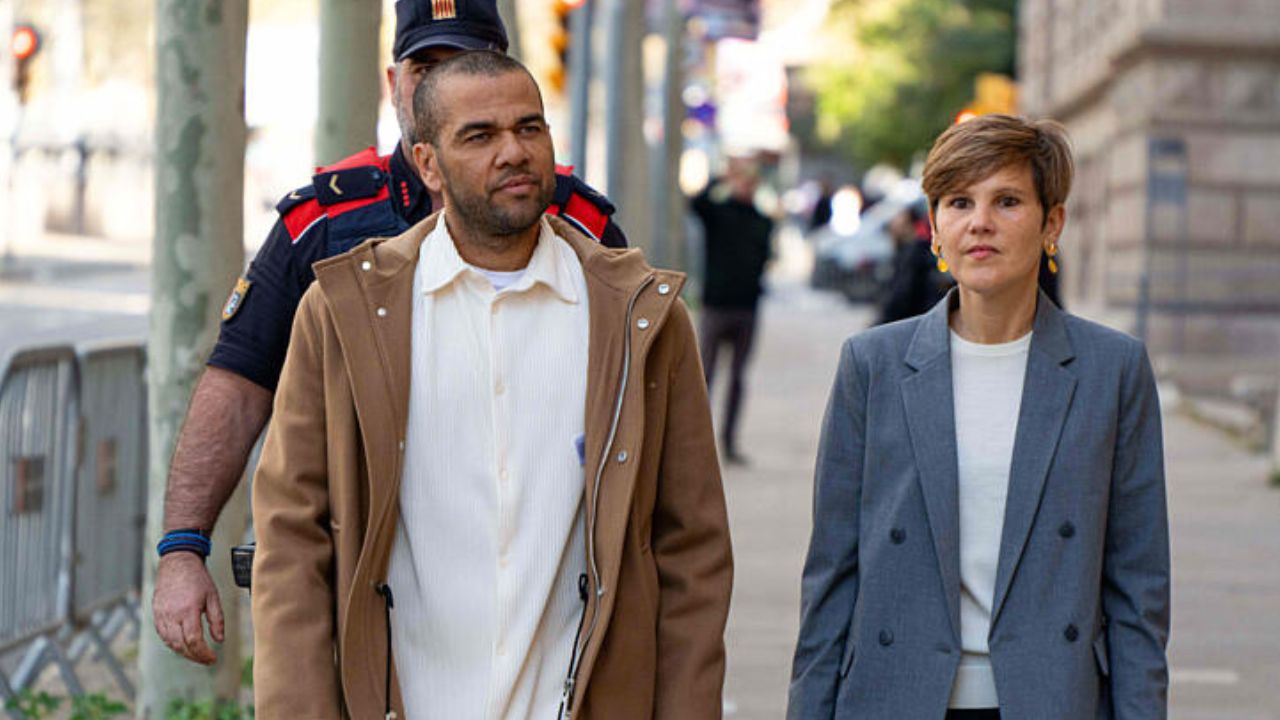Having annulled the sentence that had sentenced him to 4 years and 6 months in prison for sexual assault, Daniel Alves may return to the courts for another reason: claiming compensation from the Spanish state for spending 437 days in prison, between January 2023 and March 2024.
Spanish legislation provides for the payment of indemnity for “improper arrest”. It is in Article 294 of the Organic Law of the Judicial Power.
The text states that “those who, after having suffered pre -trial detention, will be entitled to be acquitted by the absence of the imputed fact or when, for the same reason, a decision of definitive filing has been made, provided that they have suffered damage.”
The article does not mention compensation values, but recent cases show that the amounts are far from the millionaire salaries that Daniel received during his football career.
In December 2024, a man who was 184 days in prison received compensation of about 5,000 euros (just over $ 30,000), the equivalent of 27 euros ($ 168) per day that passed.
Former Barcelona President is an emblematic case
The most emblematic case is from another football character: Sandro Rosell, former president of Barcelona, who spent 645 days in pre-trial detention for money laundering. The process was filed for lack of evidence.
Rosell sued the Spanish government and requested 29 million euros (181 million reais) of compensation, including lost contracts, moral damages and income that ceased to exist. The government’s response was to offer 18 thousand euros (R $ 112 thousand), the equivalent of 27.90 euros (R $ 173) per day in jail.
If the Spanish court applies the same criterion, Daniel Alves’s compensation would be around 11,800 euros (R $ 73,000).
Daniel Alves: Lawyer awaits outcome
Daniel Alves’s lawyer, Inês Guardiola, was asked about an indemnity claim for Radio Catalan Rac1. She stated that this is not yet the time to think about the subject, since the sentence is not definitive.
Following the trial at first instance and the Appeals Section of the Superior Court of Justice of Catalonia, which annulled the conviction, the case must still go to Spain’s Supreme Court.
At UOL, the complainant’s lawyer, Esther García, said that “legally, the right way would be to present an appeal.” She is still awaiting the endorsement of her client to appeal the decision of the STJC.
In addition to requesting compensation to the Spanish state, Daniel Alves would have the possibility of suing the complainant, claiming that there was a false testimony of crime.
However, sources heard by the UOL see an important barrier to this: in the section of the STJC appeals section, at no time is the accusation that there was false witness to the complainant.
The judges state, in the final decision, that the woman’s account contained inconsistencies and that scientific evidence did not confirm in full the testimony of either party.
“The report of sexual aggression is supported solely in the victim’s report, highlighting the scarce and insufficient force of the accusatory hypothesis,” the sentence says.
The document signed by the four STJC judges also states that the decision is not, in any way, an endorsement of the version presented by Daniel Alves for the facts.
“The only relevant hypothesis that is on trial is the accusation. Therefore, we do not claim that the hypothesis supported by the defense of the accused is true,” says the sentence published on Friday.
